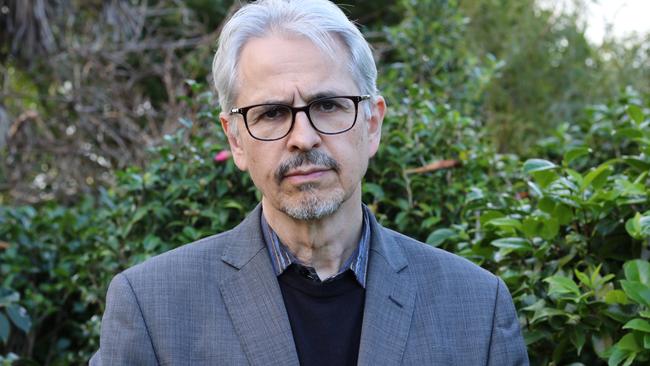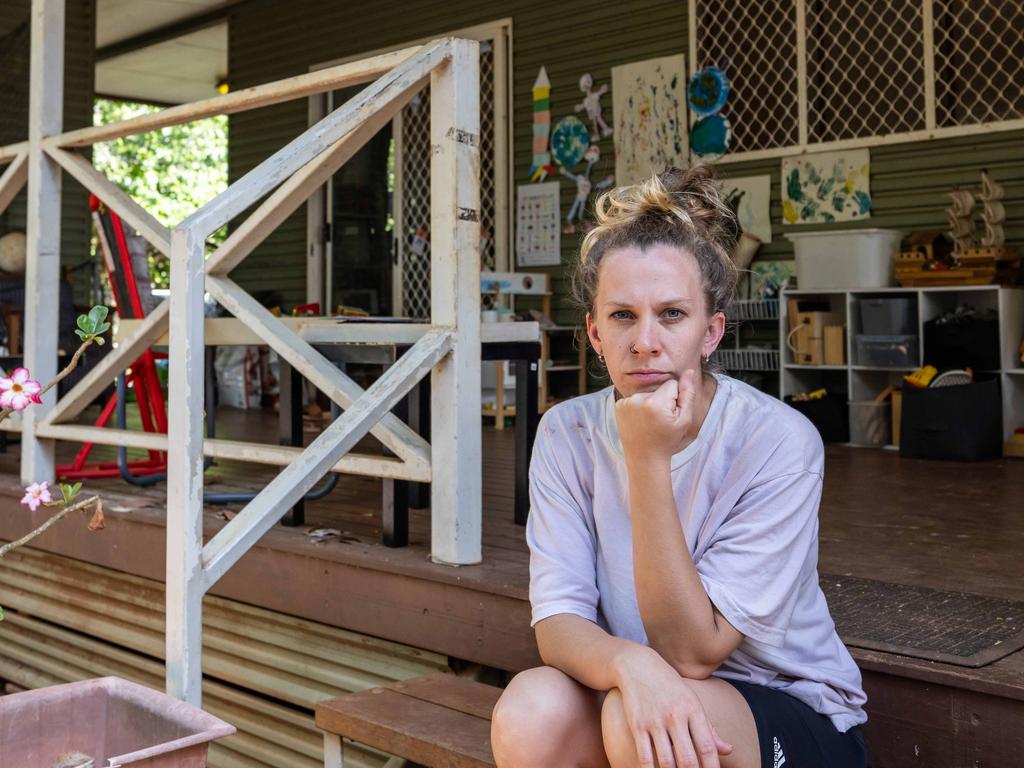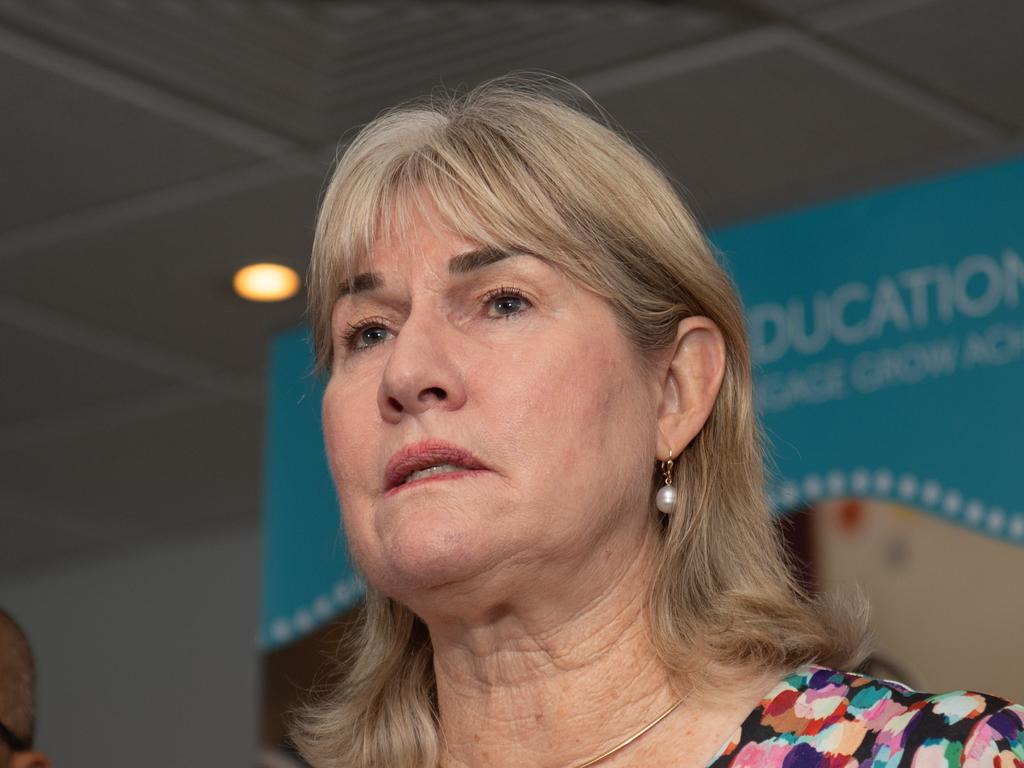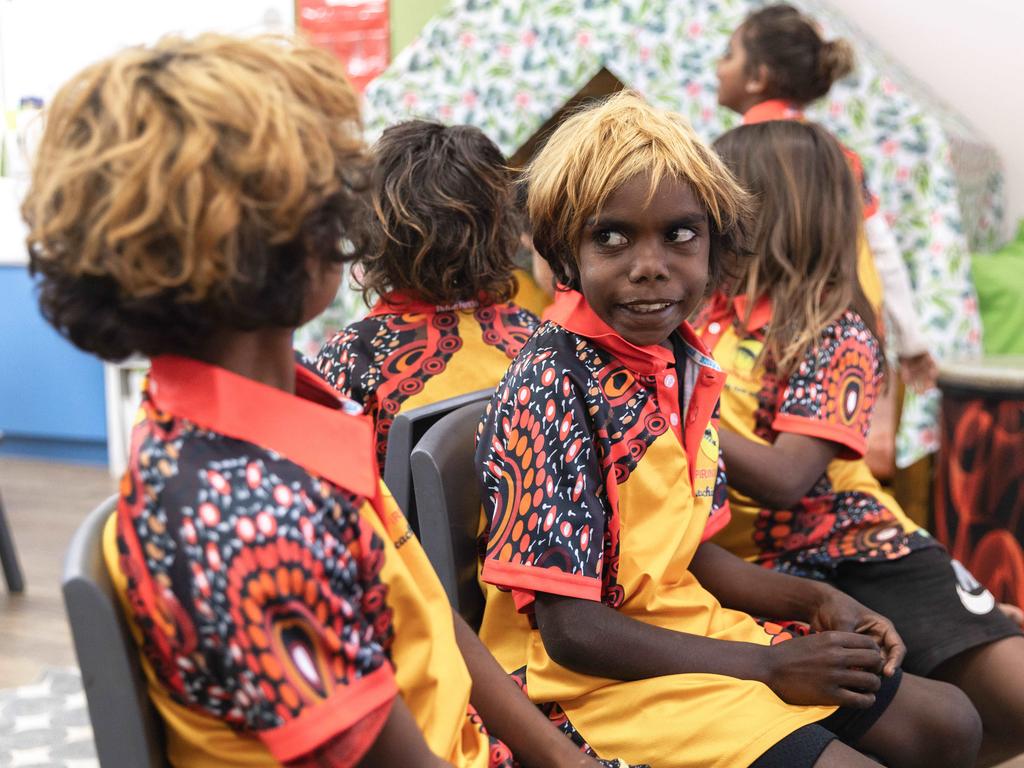NT schools in crisis: Bullied and blacklisted, teachers threatened for speaking out
Northern Territory teachers and Education Department staff say they have been blacklisted, bullied or threatened with losing their jobs if they speak out.

Northern Territory teachers and Education Department staff say they have been blacklisted, bullied or threatened with losing their jobs if they speak out, raising allegations of a severe lack of transparency within the government.
Seven years after a Labor government paper titled Restoring Integrity to Government, a public service survey out in August found only 45 per cent of NT Department of Education workers felt safe speaking up at work.
The NT People Matter Survey 2023 found 27 per cent of respondents experienced bullying, almost all of it (84 per cent) from internal staff.
Australian Education Union NT president Michelle Ayres said teachers were “terrified” of losing jobs for making any comment about their employer that could be seen as negative, even on private accounts.
“It worries me that the government is so scared of their employees talking,” she said. “My question is, what have you got to hide that you are worried that people will talk about what goes on in their employment?”
The code of conduct for the NT public sector says employees must seek authorisation before making public comment in relation to their duties; there are also restrictions on them making public comment on political and social issues as community members.
Such clauses are common for public servants in other jurisdictions but Charles Darwin University political economist Rolf Gerritsen said the NT public service was larger per capita than other states and employed about 24,000 people.
This means about one in 10 people in the NT is employed directly by the government; even more are government contractors or consultants.
Former remote principal Leon White says the consequence of such a large bureaucratic workforce monitoring what people can talk about is that people think it’s easier to keep quiet.
No one understands the consequences of speaking up more than former teacher Robert Bartholomew, who said he was blacklisted after going to the media. “There is this wall of silence and … for teachers, a fear of speaking out,” he said.
Almost immediately after Dr Bartholomew began teaching at Alekarenge (Ali Curung), in Central Australia, in 2008, community members raised concerns over asbestos based on a 2005 health inspection report that identified it as present.
The community had not received confirmation the toxic material had been removed and was concerned about children playing under the school but was also scared to raise it with the Education Department.
Dr Bartholomew said he reassured the community: “Nothing’s going to happen. These people are professionals. I will just ask them, professionally, what the situation is with the asbestos.”
He began contacting the department in February 2008. Despite multiple assurances that someone would get back to him, he said no one did.
In April, Dr Bartholomew took his concerns to the media, and according to documents he has shown The Australian, the department did not investigate the asbestos until August. “When you’re dealing with asbestos in the lives of students, you have a moral obligation to get an answer; I wasn’t taking no for an answer,” he said.
An inspector found that not only was asbestos present, there was more than reported in 2005. It then took 81 days for the material to be removed, Dr Bartholomew said. In contrast, his daughter attended Nakara Primary in Darwin when there was an asbestos scare in September 2004: “They shut the school down, sent everybody home and went in with spacesuits – immediately.”
Dr Bartholomew said he agreed to leave Alekarenge for another posting but then had employment offers at other schools revoked without notice. He investigated the matter, filing numerous FOIs and in 2010 the Justice Department uncovered evidence he had been blacklisted by the Education Department.
The Australian has also been told of reports commissioned by the government and not released. In 2019, Mr White was brought in to review Homeland Learning Centres. His report found some had “ageing or basic infrastructure, disrupted service provision and minimal access to qualified teachers, ranging from one or two days a week, to once a month”. The review was never released.
Following his blacklisting, Mr Bartholomew, a sociologist now working in New Zealand, turned 13 binders of evidence of what happened to him into a book. “Most people in the NT Education Department are good people in a bad system,” he said, “but students, and parents of those Aboriginal children in the NT, deserve better.”







To join the conversation, please log in. Don't have an account? Register
Join the conversation, you are commenting as Logout